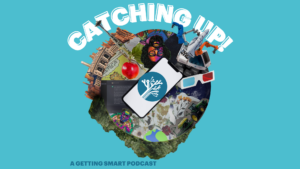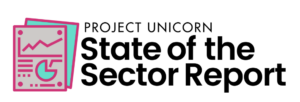Making A Difference with Data

Openness, tolerance, trade and innovation as the path to more widespread global prosperity—the ideology that activates America’s great cities—just got punched in the face.
Lots of groups felt sucker punched by the election. One group the media isn’t talking about is the tech community. While their concerns may be less immediate and visceral than others, the innovation sector that powers the global economy is confused by the backlash against the equation that has recently lifted a billion people from poverty.
There is no “bringing jobs back.” There is only creating new jobs that add value to people’s lives. There is the potential for new manufacturing jobs, but those will be in small, clean, local shops that use new robotics and smart machines to customize a batch of one economically.
New jobs will be created in smart transportation. New jobs will be created in wellness and healthcare (although it’s not clear who will have access to the associated benefits). New jobs will be created by regions that embrace skill up and startup.
It’s innovation (not protectionism) and trade (not walls) that will create prosperity. Value creation is being led by people passionate about a cause who are adding data science to their quest. The new formula for making a difference is Cause + Code. Four examples follow.
1. New Health Frontier. Eric Lander of the Broad Institute thinks building an atlas of human cells is the Human Genome Project of this generation. What’s new is the combination of biology and data. “In a few years you won’t be a biologist without being computational,” said Lander.
Is it better to start with cause or code? Lander said, “Start with passion, but force yourself to jump in the other pool, force yourself to appreciate both cultures.”
“Nothing is true in biology the way it is in math. All models are wrong, but some are useful,” said Lander. “This is the promised land of data. We’re there,” added Lander, and there is “room for lots of people.” In fact, he thinks biology is underserved by data science by something like 20x.
2. Data for Food. Mallory Soldner wants to end world hunger. That may sound like an unusual ambition for the analytics manager at UPS. But Soldner thinks companies have a big role to play in fixing the problems in our world. She advocates data philanthropy—companies donating data, talent and tools to humanitarian causes. She knows from experience that NGOs find it challenging to hire top data talent.
After earning a Master’s in Operations Research from MIT, Soldner earned a PhD in Industrial Engineering from the Georgia Tech. Her thesis explored how to measure and improve humanitarian operations in practical ways using algorithms. While in graduate school, she helped lead supply chain optimization projects for the UN World Food Program.
“If we want to make big changes in big problems like world hunger we need everybody to come to the table, said Soldner, adding that it should be the data people from humanitarian organizations leading the way.
She has seen the way a few hours a month from a private sector data scientist can make a big difference on big problems — from the refugee crisis to world hunger.
Why companies should donate data, talent, tools to meet #GlobalGoals problems https://t.co/e3Cu3iYpIL @MallorySoldner #AskAboutAI pic.twitter.com/oEVLcVisFc
— Tom Vander Ark (@tvanderark) November 12, 2016
3. Spotlight on Trafficking. Digital Reasoning is a leader in cognitive computing. The company is on a moral mission to build software that can be used for the greater good. Digital Reasoning is quietly making a positive impact in national security, law enforcement, threat detection, market monitoring, healthcare and human trafficking reduction, and they are making this difference with data.
CEO Tim Estes is particularly proud of a recent project with Thorn, a non-profit founded by Ashton Kutcher and Demi Moore, which uses cognitive computing to identify trafficked humans and those who control them. The data tool they developed, called Spotlight, has delivered a 60% time saving for over 3,000 U.S. officers identifying 4,545 adult and 1,980 child victims, as well as 2,186 traffickers, in the last 12 months.
4. Making a Difference with Data. Launched in the United Kingdom in 2011, Making a Difference with Data (@MADwDATA) works with leaders in the public, private and third sectors to demonstrate the role of data in delivering social and economic growth, citizen engagement and effective public services.
Conclusion: In the automation economy, people will add value by:
- Picking a problem worth solving (see #GlobalGoals)
- Learning fast and becoming an expert in emerging fields linked to global goals.
- Wrangling big data sets and learning tools that can extract insights.
- Scaling sustainable solutions that promote access and equity.
People passionate and knowledgeable about helping a cause, using smart tools to derive new insights and building platforms to deliver new services will create broader prosperity and wellness. They could also cause a lot of trouble or hog all the benefit for themselves—that’s why it’s a good time to #AskAboutAI and teach young people the Cause + Code impact formula.
For more of the #AskAboutAI series, see:
- Smart Machines Will Eat Jobs—Except Where Smart People Create Them
- Living With Smart Machines (home robots)
- Building the Ability to Work Alongside Machines: 10 Lessons from Peter Schwartz
- How Smart Transportation will Transform Cities
- #AskAboutAI: Learning to See and Speak (safety & security)
- AI is Improving Healthcare… But Will Benefits Be Widely Shared?
- Cause + Code: The New Impact Formula
- Artificial Intelligence is Reshaping Life On Earth: 101 Examples
- Batch of One: How AI and Robots Will Bring Manufacturing Home to the US
Stay in-the-know with all things EdTech and innovations in learning by signing up to receive the weekly Smart Update.








0 Comments
Leave a Comment
Your email address will not be published. All fields are required.